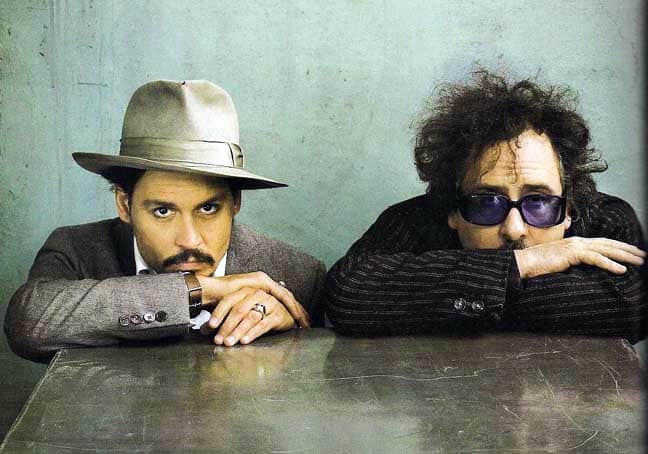The great catastrophe began on Sept. 28, 1968, when the television show The Mod Squad debuted on the ABC network. Before The Mod Squad, hippies were marginal creatures, who poured lighter fluid on electric guitars or stood on Atlanta street corners trying to sell copies of The Bird.
But The Mod Squad spread the insidious message that hippiedom could be mainstream — so mainstream that even a bunch of detectives could be hippies. Those who’d always been known as people who “hassled” (in the hippie lingo of the day) hippies could themselves be hippies. One of them even wore an afro!
Hippiedom spread even further into the mainstream exactly two years later when The Partridge Family (another ABC show) debuted. The message here was plain enough: hippiedom had permeated the nuclear family structure itself. There were no more important structures of society left for hippiedom to conquer.
Just in case a few people who’d been in comas missed these shows, a mere six months later, All in the Family debuted. On this show — which enjoyed unprecedented popularity — Rob Reiner strutted around as a perfectly integral member of the family, and also clearly the family member who was the smartest of the bunch. Indeed, much of his immense hippie intelligence was used to mock those characters in the program who dared to question hippieism.
Reiner clearly looked like a hippie. Why did he look like one? Well, he was one. It was as simple as that.
It shouldn’t have been lost on anyone that two of the three networks were now willing purveyors of the revolting doctrine that hippiedom could be, and was, an essential part of American mainstream life.
There were occasional hopeless efforts of resistance. The Brady Bunch, a television show about a wholesome, mainstream American family, once featured a guest star who had the trademark long, shaggy hippie haircut.
“Momma,” asked a young daughter, “why is his hair so long?”
“Well, honey,” said Momma (Florence Henderson), “he doesn’t feel very good about how he is inside so he tries to cover himself up with hair so you can’t see in his eyes.” This was the perversity of hippiedom expressed in a nutshell, and a powerful argument against it. But in the end, it was merely a prophet crying in the wilderness.
Some may have thought that Reaganism would put a crimp in the hippie domination of American popular culture. But dropping a 25 megaton bomb on HUD subsidies didn’t even slow down the hippie juggernaut.
That was evident in Prince’s 1985 album Around the World in A Day, with its psychedelic art and tunes. The record was an arrogant, triumphant and assured celebration of hippiedom’s lock on popular American culture. The message was clear — we’ve won.
Take the chorus from the album’s biggest hit, Little Red Corvette. “You need a love that’s going to last.” Love? What love would that be? Oh, I don’t know. Could it be the love that was the focus of the line “All you need is love” — the quintessential hippie principle as expressed by the quintessential hippie, John Lennon? Prince’s “You need a love that’s going to last” translated into “You need John Lennon’s hippie love, which you can be sure is going to last a long, long time in American mainstream culture.”
Prince’s message was just following up on the movie The Big Chill, released two years earlier, which had reinforced the message that hippiedom was still firmly in control of the American family and the cinematic branch of popular culture.
But even the most potent cultural force will eventually lose power if the public isn’t reminded of its strength from time to time. Thus it was that movies celebrating and advancing hippiedom followed fast and furious: Born on the Fourth of July (1989); The Doors (1991); Forrest Gump (1994).
All of this was small potatoes in comparison to the emergence of the ultimate tag team of hippiedom: Tim Burton and Johnny Depp.
Depp had earned his hippie chops early on with What’s Eating Gilbert Grape (1983). At about the same time, Burton honed two irreverent and disturbing portrayals of the terrain of the hippiedom with Pee Wee’s Big Adventure (1985) and Beetlejuice (1988).
In the 21st century, the hippie team of Burton and Depp tried taking hippiedom to a new realm of domination: historical revisionism. In two films — Sweeney Todd (2007) and Alice in Wonderland (2010) — they created the potent myth that hippies had been prominent in Victorian England, thus giving hippiedom a mythical historical background. For those who didn’t know the historical background was fictional, it was just more verification of the validity of hippiedome.
Movies always have far more influence on the popular culture than music. Why? People listen to the words in movies and don’t listen to the words in music.
Still, hippies have ensured that Prince’s message of hippie dominance of popular music endures. Of course, there are the usual suspects — Phish, Flaming Lips, Spiritualized. But hippiedom’s now extended its reach into experimental music, in a subgenre called (not very subtly) “psychedelic trance.” “Oh Brad,” you say, “trance is just experimental music. Nobody listens to it. It has no influence over anything.” Don’t you believe it.
Hippieism’s conquest of America’s popular culture and media is complete. Everywhere one looks, one sees the cultural icons of hippieism: Johnny Depp, Russell Brand, Brad Pitt, Lil’ Wayne and that freak Drew Barrymore. Now even Miley Cyrus wants to be a hippie. She doesn’t, apparently, know how to do it. But she seems bound to do it or die trying.
The war has been lost. But is there still a chance for an effective revolt? Maybe.
It’ll be up to you to try. Tell your children and grandchildren to break their Country Joe and the Fish and Quicksilver Messenger Service albums, to burn their Eldridge Cleaver and Ram Dass books, to tear up their Stairway To Heaven black light posters, and smash their mood rings and Pet Rocks.
It’s our last chance. But maybe it is, in the long term, a real chance. The most desperate of measures may, in just the right circumstances, forge the most unlikely return of goodness, truth and purity.















Comments are closed.